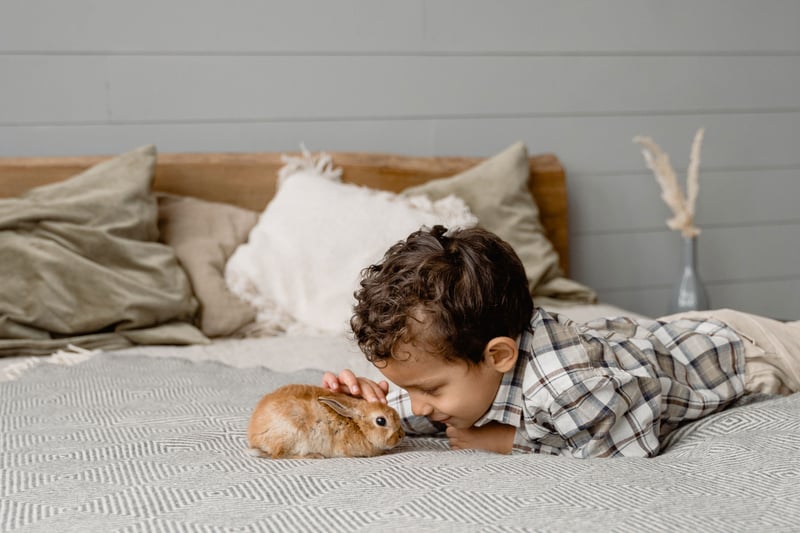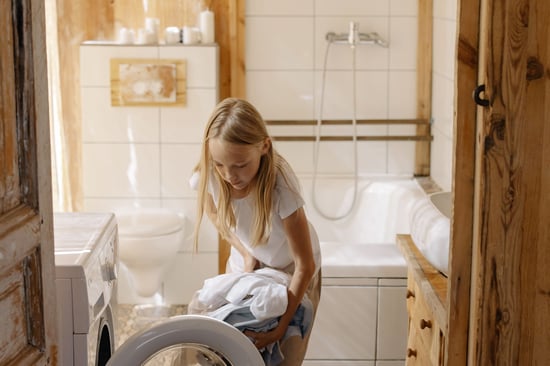
Children are not born bad but they do start out thinking that everything revolves around them, demonstrating an innate selfishness. The capacity to be kind and caring towards others is within them, it just needs to be nurtured and developed.
So how do we, as parents, teach our children to be ‘nice’?
Make caring for others a priority
In a 2014 Harvard Graduate School of Education survey of 10,000 students, 80 percent of respondents said that their happiness and personal achievements were more important than caring for others. Fairness also ranked far lower than personal achievement.
“If you are not happy, life is nothing. After that, you want to do well. And after that, expend any excess energy on others,” was the overriding view.
Parents often value their child’s happiness and personal success above their child’s concern for others. Good grades and sporting achievements are celebrated more than altruism and good citizenship. If we want our children to be ‘nice’, we have to look at our own values and what we hold in high esteem.
Model ‘nice’ behaviour
There’s no avoiding it. If we want to teach our children to be kind, generous, loving, fair, grateful citizens, we have to lead by example. We are their role models, their mentors. Mums and dads need to be helpful and appreciative of each other – not sarcastic and intolerant, taking each other for granted. We need to be friendly neighbours, looking out for others, respectful, generous with our time and resources. Of course, no-one’s perfect; we also need to demonstrate positive ways of dealing with our mistakes – how to apologise and put things right when we mess up.
Repetition, repetition, repetition …
The more ‘niceness’ is practiced and re-enforced, the more second-nature it becomes.
- Remind your kids to be polite, to say ‘please’ and ‘thank you’, to look people in the eye as they are talking to them. Take them by the hand to thank friends’ parents for having them at the end of play-dates or parties. Show them how to be courteous to shop assistants, waiting staff, bus-drivers etc.
- Use memorable phrases: “If you’ve got nothing nice to say, don’t say anything at all”, “Use your kind voice, please”. Eventually, the message might sink in. So what if you sound like your mother? It worked for you, right?
- Regular household chores and helping out at home may not make children spontaneously kind but it teaches them not to be selfish. They learn that everybody must do their part. They become more aware of what goes on around them and no longer think they are the centre of the universe. Don’t reward them for every bit of help you receive from them – clearing the table, tidying their bedroom, unstacking the dishwasher etc; daily kindness and helpfulness should be considered as a basic part of everyday life.
- Get your kids into the habit of counting their blessings and being grateful – ask them what they are thankful for at the end of each day. Say grace at meal times, thank God at prayer time. Thank whoever has cooked their dinner or driven them to school. Teach them not to take things – or people – for granted.

Talk about it
Chatting about movies, television programs, newspaper articles, books – even what your kids tell you about their peers - offers great opportunities to help your children identify and understand ‘nice’ behaviour:
e.g.
“How would you have handled that situation?”
“How do think she might have felt?”
“Why do you think he reacted like that?”
“Tell me about the new boy – what do you like about him?”
Stop making fun
Teasing, put-downs, mocking … all are playground staples. Sticks and stones may break your bones … but words can sting and hurt and scar. Words can cause more damage than a kick in the shins! When teaching kids to be kind, we need to firmly discourage them from belittling others. Of course, this has to start at home. If we are continually making fun of our own children and laughing at their flaws, they will think this is acceptable behaviour.
Provide opportunities to be kind, friendly and helpful
- Give your kids a charity collection box and encourage them to contribute some of their pocket money.
- Let your kids join in with voluntary or community work you might do.
- Take your kids to visit an elderly friend or relative.
- Encourage them to make ‘Get Well’ cards and/or help you bake a cake or choose flowers for a sick neighbour.
- Teach them not to litter – maybe even encourage them to tidy up someone else’s litter.
- Hand them the plate of cakes at a party or family gathering and ask them to offer them around.
- When they have friends over, show them how to be a good host and how to be attentive to their guests (eg ask what they would like to play, let their friends go first in games, share out snacks, tidy their room in advance of friends arriving).
Manage negative feelings
We all get angry, frustrated, embarrassed or stressed-out from time to time. Children need to be taught how to deal with such strong emotions without taking them out on others.
This might include:
- removing themselves from the situation or taking a break
- counting to ten or learning breathing techniques
- talking to a friend or adult
- finding something else to focus on
- learning how to put things in perspective
This is not easy for a child – it’s not easy for an adult – so it helps to talk things through with your child and remind them of previous occasions they may have felt this way and how they processed their emotions.
Grit your teeth
When your little poppets volunteer to help wash the dishes and end up flooding the floor with a tsunami of soap suds, it is too easy to take over the job and not let them near the kitchen again. Similarly, it may be difficult to express gratitude and delight when junior wakes you at 4.30am with a surprise breakfast of cold tea and toast.
Our children’s unprompted attempts at helpfulness or kindness will not always have the desired outcome. There will be many times when they have to go backwards to go forwards. But we need to encourage them and cheer them on … and maybe – ever-so-gently – show how they might do things even better next time around.










